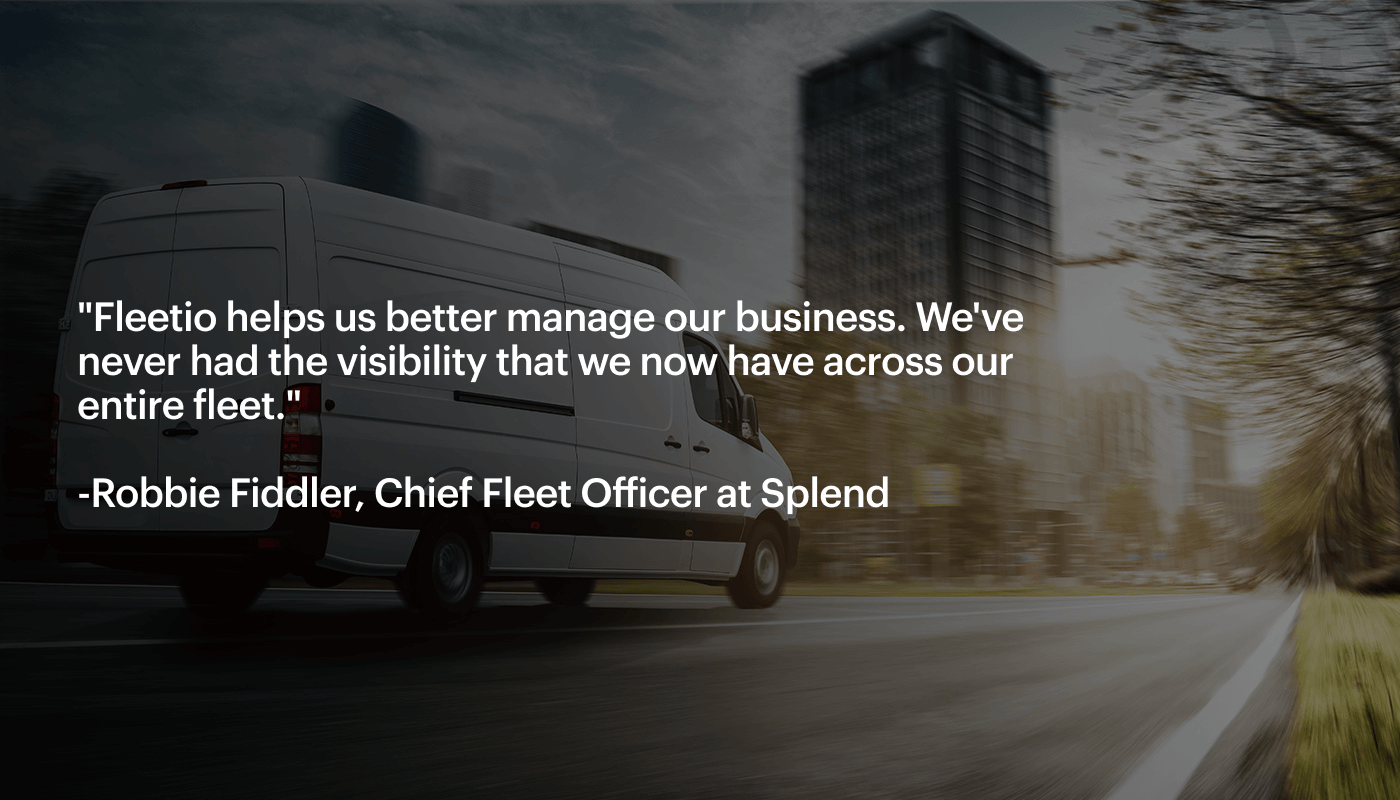The best fleet management software is a system for fleet managers to track and manage vehicle maintenance, expenses and operations to maximize efficiency.

How to Select the Best Fleet Management Software
Fleet management software should provide fleet managers with specific insight into vehicles and equipment. A fleet management system not only aggregates fleet data but also assists in decision making for things like vehicle inspections, tracking and maintenance, among other solutions. Before choosing a fleet management software to help manage your fleet, it’s important to consider what features your software should have to achieve success as a fleet manager.
As fleet management software and technology offerings continue to grow at a rapid rate, many fleet managers enjoy the value of using fleet management software to improve processes and better manage operations. Spreadsheets and antiquated processes have long been the norm, but they are inefficient, inaccurate, cause downtime and create communication gaps.
A fleet management system should provide users with a mobile-first platform that automates operations and houses all fleet data in a central location. The best fleet management system enables fleet managers to tailor the user experience to things that are most relevant to their fleet.
When making the decision to take your fleet operations mobile, it’s important to consider your current processes, what works and what can be improved. Think about what benefits you’ll get out of tracking your assets on a mobile platform and the type of data you’ll leverage.
Comparing Fleet Management Software
Not all fleet management systems are created equal. When it comes to fleet management software, necessary features should be configurable to fit your fleet’s needs. Keep in mind, not all software is created equal.
You may come across several providers offering a similar solution, but the capabilities might contrast greatly. This stresses the importance of conducting a trial or demo of the fleet management software before committing to it.
Taking a hands-on approach with a free trial or demo ensures you know how the features work and how they can be implemented across your operation.
| Fleet Management Software Features | Fleetio | Competition |
|---|---|---|
| Mobile App for iOS and Android Devices | ||
| Preventive Maintenance Schedules and Reminders | ||
| Maintenance Shop Integration | ||
| Configurable Electronic Vehicle Inspection Forms | ||
| GPS and Telematics Device Integrations | Limited | |
| Fuel Tracking and Card Integration | Limited | |
| Calculates TCO and Cost Per Mile | ||
| Optimal Lifecycle Replacement Analysis | ||
| Recall Management | ||
| Unlimited Users and Controllable Access Levels | Priced Per User | |
| Driver Records and Assignments | ||
| Dedicated Quality Support | Added Expense | |
| API Access | Added Expense |
What Features Should a Fleet Management Software Have?
There are countless fleet management software providers available to choose from. Many fleet management systems don’t offer enough features to manage the most important data related to your fleet in a single software.
The best fleet management software centralizes your data, integrates with other solutions, automates workflows and maintains a comprehensive database making life much easier for fleet managers.
When deciding on a fleet management solution, it is important that it offers unique features and capabilities to help you manage every aspect of your operation.
1. Ease of Use
Some fleet managers can be apprehensive when making the switch to an improved fleet management system due to concerns over change. Fortunately, a fleet management software is intuitive, offers a variety of features and is configurable to your fleet.
One of the best ways to start using your fleet management software is by bulk importing your vehicle identification numbers (VINs) into a VIN Decoder. This allows you to instantly retrieve over 90 specifications on each of your assets. From there, you can start using the features that matter, like completing a vehicle inspection or managing your maintenance workflow.
Though most fleet management systems seem easy to use, there are often questions along the way. A quality fleet management software should offer a strong support team and robust training resources for you to troubleshoot any issues without delay.
2. Simple Implementation
One of the benefits of implementing a web-based fleet management solution, like Fleetio, is that you can easily start using the product immediately, as there’s no on-site implementation. As soon as an account is created, set-up and onboarding is a breeze.
While fleet managers can get started on their own, quality fleet management software provides live support and educational resources, like training videos and webinars, to guide you through implementation. Fleetio also offers Onboarding Services Packages to accelerate the onboarding process and offer feature-based training.
3. Mobility
Your fleet is mobile and your fleet management system should be, too. The use of outdated paper-processes inhibits communication and doesn’t provide a clear look at your fleet in real time. The ability to collaborate through software and mobile apps in real time can transform your fleet efficiencies. A fleet management solution that prioritizes visibility and collaboration allows you to enact the most proactive approach.
A mobile-first fleet management software enables fleet managers to stay connected to drivers, maintenance supervisors, mechanics and their assets with a native mobile app. The use of an app to handle fleet management tasks enables users to log and upload accurate data instantly, keep the lines of communication open and maintain vehicle uptime.

4. Scalability
All fleets are different and range considerably in size. Whether you have 10 or 10,000 mobile assets, the best fleet management software is scalable and caters to your fleet’s specific needs.
Scalable fleet management software, like Fleetio, offers simple pricing based on the number of assets in your fleet. This pricing model enables fleet managers to pay for what they need, determine what plan’s features work best for them and easily scale as their business grows.
5. Integration Options
Many fleets, even ones not currently using fleet management system, currently use some form of technology to streamline processes. Tools like telematics devices and fuel cards aid fleet management and offer large amounts of data to track and analyze.
While these tools are useful on their own, combining them with fleet management software augments value by allowing you to track all fleet data in one place. Fleetio not only integrates with many of the top telematics devices and fuel cards but also provides Maintenance Shop Integration, allowing you to manage external repair orders and consolidate billing.
6. Reporting
The success of your fleet is all in the numbers. Having hard data on every aspect of your fleet helps you make the best decisions for maintenance and operations.
While spreadsheets may have the data, they can be difficult to surface, read and analyze quickly. Instead of tracking down the right information to send to stakeholders, fleet management software provides robust reporting capabilities for you to analyze and improve your fleet.
In addition to having easy-to-read data at your fingertips, a fleet management system allows for flexible, configurable reporting for you to get the most out of your data. You can also subscribe to reports you need regularly, or export them to PDFs to share with other stakeholders.
7. Expense Management and Total Cost of Ownership
A fleet manager can spend hours, days, even months crunching numbers to try and determine their fleet’s true total cost of ownership (TCO). What if this was automatically calculated?
To get a true look at your TCO and vehicle cost per mile, a fleet management system offers comprehensive expense reporting that provides a detailed look at your operating costs. Not only does this allow you to gain insight into expenses, like fuel and maintenance, but it also helps identify overspending and enables budget tracking.
From there, you can analyze trends and make informed decisions to improve expense management. This data can also be easily applied to help determine your optimal vehicle replacement window.
8. Performance Metrics
The past can teach us a great deal about the future. Tracking the history of your fleet’s performance helps identify patterns and trends across your assets that will help improve your fleet’s future.
The best way to track performance across your fleet is by measuring real-time performance metrics like asset utilization, service history and fuel trends to discover areas of improvement and determine the best course of action for the future of your fleet.
9. Automation
With the busy schedule of fleet managers, it’s hard to find time to key in data, much less analyze it. One of the top benefits of fleet management software is the ability to automate processes and data collection.
A fleet management system automates everyday operations, like inspections and preventive maintenance, to streamline fleet management and collects virtually all fleet data in real-time, eliminating manual data entry and organizing all data in an easy-to-search platform. Instead of trying to track down information across multiple spreadsheets, you can spend more time analyzing it.
10. Return on Investment
While it’s true that fleet management software can have a return on investment (ROI) just through its use, the best fleet management software can help generate ROI for your fleet as a whole.
Eliminating paper-based processes like vehicle inspections can help your team save time and address issues immediately, thus reducing downtime. Fleets who outsource maintenance can save at in-network shops, approve repair orders instantly and consolidate billing.
The best fleet management software easily demonstrates the value and ability to maximize your fleet’s ROI.
All fleet management software is not created equal. Start your free trial of Fleetio or request a demo to discover how we can improve your fleet!




